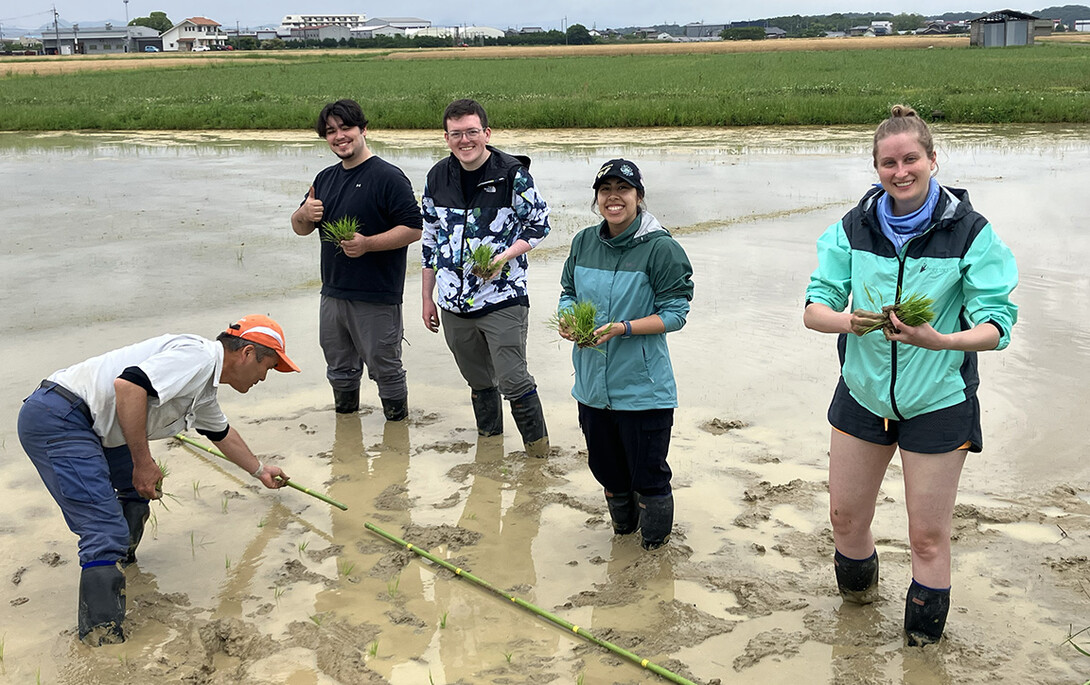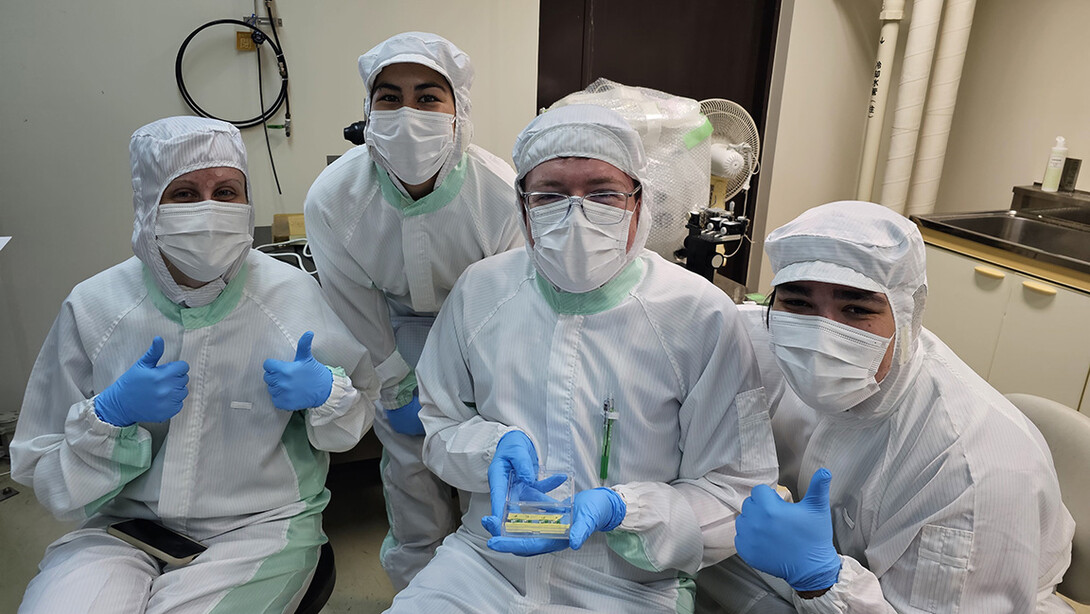
Three Nebraska Engineering students and a physics student from Nebraska Wesleyan University are on a unique research adventure for nine weeks, working on a project at a university in Japan.
Nebraska undergraduates Laurel Wagner, a senior in chemical engineering; Jonathan Janecek, a junior in electrical engineering; and Rachel Wagner, a doctoral student in mechanical engineering, are joined by Christian Sunderland from Nebraska Wesleyan.
The team, which left May 22 for Japan, is supported with a three-year grant awarded to Sangjin Ryu, associate professor of mechanical and materials engineering, from the National Science Foundation International Research Experiences for Students program.
The students were selected following a statewide application process, during which Ryu and Jessica Deters, assistant professor of engineering education at UNL, reviewed the applications and interviewed the students. Deters and Ryu will collaborate to understand how being immersed in research in a different culture impacts students’ development as engineers and researchers, drawing on Deters’ expertise in global engineering programs.
“This program is very meaningful,” Ryu said. “It will provide students with research experience and expose them to collaboration with people of other cultures and countries. Most of them have no experiences in either, so this will be very valuable to the students, and we hope it will also be valuable to Nebraska and our university.”
Their first week in Japan, the students stayed at Kobe University and acclimated to the country and the culture. Ryu said that opportunity was made possible through a long-standing collaboration between the University of Nebraska–Lincoln and Yasuhito Shirai, dean of Kobe’s Graduate School of Agricultural Science. Shirai annually brings a group of students to UNL to visit the agriculture programs and local sites, Ryu said.

Currently, the students are completing eight weeks of work alongside researchers at Toyohashi University of Technology who are using microfluidics and CMOS sensors to develop portable diagnostics devices to detect viruses or bacterial pathogens.
The students’ trip will also include visits to local Japanese companies, such as Kawasaki, before they return in late July.
In the next two years, the IRES grant will allow more Nebraska students to work in Japan, and Ryu said he hopes this IRES grant is the beginning of a collaboration between Nebraska and Japanese universities.
“I’ve heard from my Japanese colleagues that their universities are always looking for international collaborators because their government puts a lot of weight on globalization of their academic institutions,” Ryu said. “That means more opportunities for our students to participate in exchange programs and develop global experience as well.”







